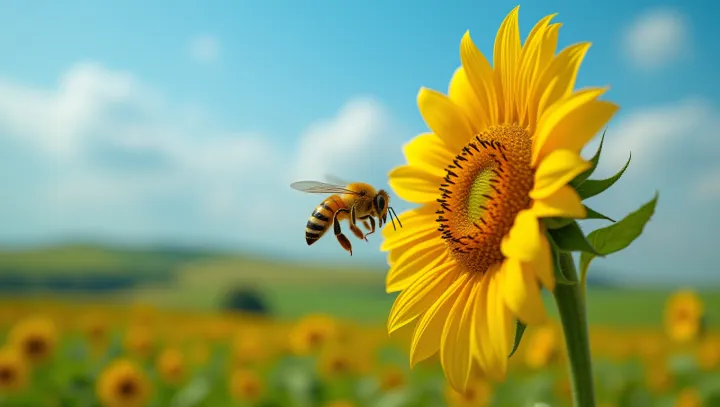Bees: The Tiny Giants of Agriculture

In the lush terrains of Northern California, the undeniable significance of bees in agriculture comes to life. These miniature pollinators, pivotal in their task, support the growth of more than a third of the world's food crops. Their journey, from flower to flower, ensures that fruits, vegetables, and nuts flourish, contributing substantially to the global food supply.
Agricultural scientist Dr. John Peterson emphasizes, 'The absence of bees would lead to stark declines in crop yields, affecting food production worldwide.' The critical process of pollination that bees facilitate not only influences the quantity but also the quality of the produce, ensuring vibrant flavors and nutritional value. Moreover, bees play an indispensable role in maintaining ecological balance.
Their pollination activities foster plant biodiversity, which in turn supports other wildlife. This intricate web of life depends heavily on bee activity, underscoring their role beyond mere crop production. As concerns over climate change and habitat loss mount, the spotlight on bee preservation efforts becomes ever more critical.
Through conservation initiatives and sustainable agriculture practices, stakeholders can help secure the future of these essential insects, maintaining the health of our ecosystems and food systems alike.
